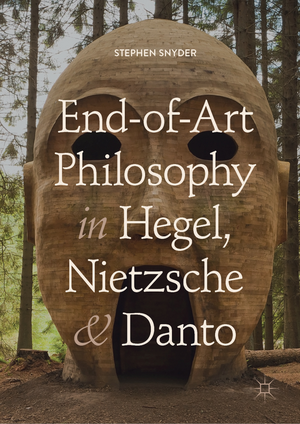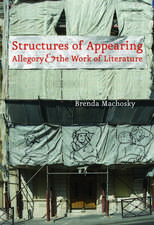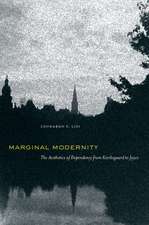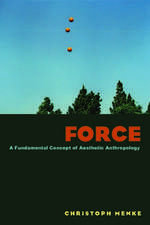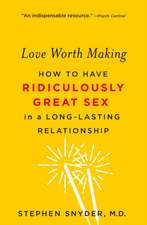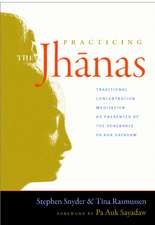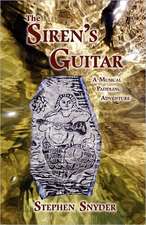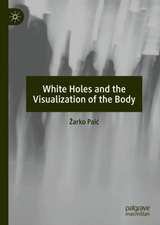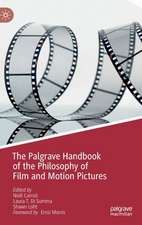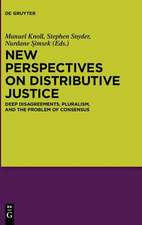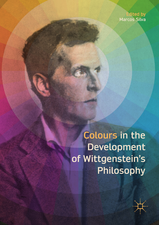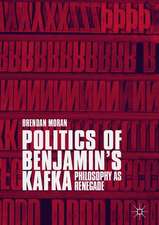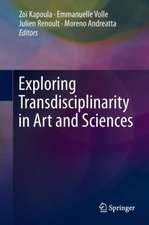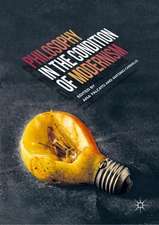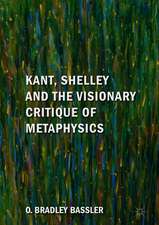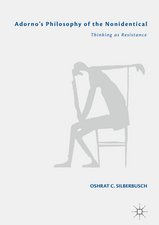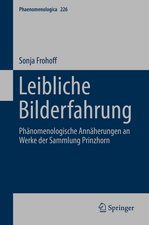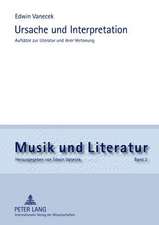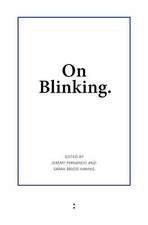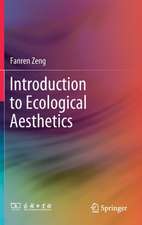End-of-Art Philosophy in Hegel, Nietzsche and Danto
Autor Stephen Snyderen Limba Engleză Hardback – 15 noi 2018
| Toate formatele și edițiile | Preț | Express |
|---|---|---|
| Paperback (1) | 582.63 lei 6-8 săpt. | |
| Springer – 28 noi 2019 | 582.63 lei 6-8 săpt. | |
| Hardback (1) | 588.50 lei 6-8 săpt. | |
| Springer International Publishing – 15 noi 2018 | 588.50 lei 6-8 săpt. |
Preț: 588.50 lei
Preț vechi: 692.36 lei
-15% Nou
Puncte Express: 883
Preț estimativ în valută:
112.64€ • 122.40$ • 94.68£
112.64€ • 122.40$ • 94.68£
Carte tipărită la comandă
Livrare economică 21 aprilie-05 mai
Preluare comenzi: 021 569.72.76
Specificații
ISBN-13: 9783319940717
ISBN-10: 3319940716
Pagini: 185
Ilustrații: XV, 301 p. 14 illus., 12 illus. in color.
Dimensiuni: 148 x 210 x 20 mm
Greutate: 0.54 kg
Ediția:1st ed. 2018
Editura: Springer International Publishing
Colecția Palgrave Macmillan
Locul publicării:Cham, Switzerland
ISBN-10: 3319940716
Pagini: 185
Ilustrații: XV, 301 p. 14 illus., 12 illus. in color.
Dimensiuni: 148 x 210 x 20 mm
Greutate: 0.54 kg
Ediția:1st ed. 2018
Editura: Springer International Publishing
Colecția Palgrave Macmillan
Locul publicării:Cham, Switzerland
Cuprins
Chapter One: The End of Art Debate.- Chapter Two: Hegel: The End of Art as Truth Incarnate.- Chapter Three: The Transformative Power of Creativity in Nietzsche's Saving Illusion.- Chapter Four: Danto and the End of Art: Surrendering to Unintelligibility.- Chapter Five: Style of the Future.- Bibliography.- Index
Recenzii
“The book under review brings a valuable contribution to the discussion about the end of art, grasping it from an interesting point of view which provides the reader with an original insight into the end-of-art theories of three significant philosophers.” (Šárka Lojdová, Estetika -The Central European Journal of Aesthetics, Vol. 56 (2), 2019)
Notă biografică
Stephen Snyder is Visiting Assistant Professor of Philosophy at Boğaziçi University, Istanbul, Turkey and a Fulbright Fellow at Tbilisi State University, Georgia. His research interests are in the philosophy of art and social and political philosophy. He is co-editor of New Perspectives on Distributive Justice (2018). Recent essays appear in Michael Walzer:Sphären der Gerechtigkeit. Ein kooperativer Kommentar (2006), Philosophy in the Contemporary World and Countertext.
Textul de pe ultima copertă
This book examines the little understood end-of-art theses of Hegel, Nietzsche, and Danto. The end-of-art claim is often associated with the end of a certain standard of taste or skill. However, at a deeper level, it relates to a transformation in how we philosophically understand our relation to the ‘world’. Hegel, Nietzsche, and Danto each strive philosophically to overcome Cartesian dualism, redrawing the traditional lines between mind and matter. Hegel sees the overcoming of the material in the ideal, Nietzsche levels the two worlds into one, and Danto divides the world into representing and non-representing material. These attempts to overcome dualism necessitate notions of the self that differ significantly from traditional accounts; the redrawn boundaries show that art and philosophy grasp essential but different aspects of human existence. Neither perspective, however, fully grasps the duality. The appearance of art’s end occurs when one aspect is given priority: for Hegel and Danto, it is the essentialist lens of philosophy, and, in Nietzsche’s case, the transformative power of artistic creativity. Thus, the book makes the case that the end-of-art claim is avoided if a theory of art links the internal practice of artistic creation to all of art’s historical forms.
Caracteristici
Takes an original comparative approach to the end-of-art theories of some of philosophy's most renowned figures Offers a radical new understanding of Danto's explosive end-of-art thesis through analysing Habermas' reaction to his seminal work Provides a clear theoretical framework to account for changes in the morphology of art within the contemporary art world
